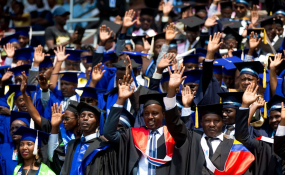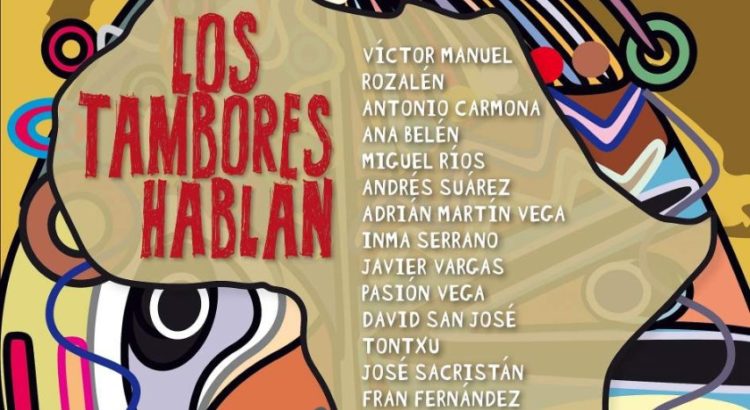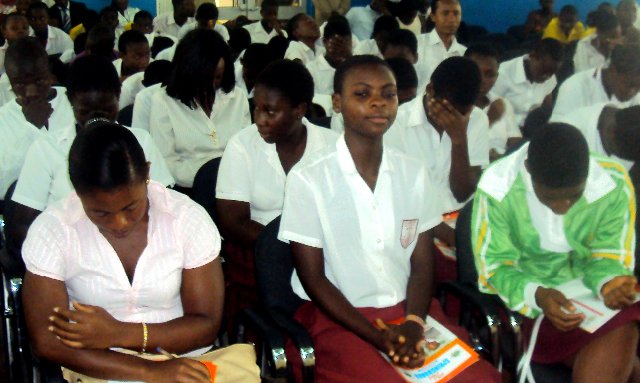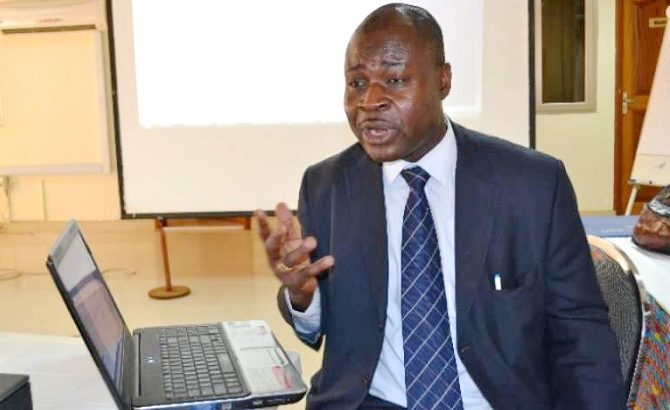África/Abril de 2017/Autor: James Karuanga/Fuente: All Africa
Resumen: Dice un nuevo informe que conseguir y garantizar la equidad y la asequibilidad en los marcos regulatorios son dos de las formas que los responsables políticos deben considerar para hacer que la educación superior sea equitativa y asequible para todos. El nuevo Informe de Seguimiento de la Educación Global, publicado por la UNESCO, también recomienda que los gobiernos establezcan agencias nacionales para asegurar la igualdad de oportunidades; Y varían los criterios de admisión para responder a las necesidades de diferentes individuos. «Al crear y transmitir conocimientos vitales, habilidades y valores fundamentales, la educación superior es una piedra angular para alcanzar los Objetivos de Desarrollo Sostenible», dijo Irina Bokova, Directora General de la UNESCO. «La demanda de educación superior va a seguir aumentando y los gobiernos deben responder introduciendo una serie de nuevas políticas que aseguren que la expansión no deje atrás a los marginados y que el acceso se base en el mérito y no en el privilegio».
Ensuring those who need help the most are getting it and guaranteeing equity and affordability in regulatory frameworks are two of the ways policy makers need to consider in order to make higher education equitable and affordable for all, says a new report.
The new Global Education Monitoring Report, released by UNESCO, also recommends that governments establish national agencies to ensure equal opportunities; and vary admissions criteria to respond to different individuals’ needs.
«By creating and transmitting vital knowledge, skills and core values, higher education is a cornerstone for achieving the Sustainable Development Goals,» said Irina Bokova, Director-General of UNESCO.
«Demand for higher education is going to continue rising. Governments must respond by introducing a range of new policies that will ensure the expansion doesn’t leave the marginalised behind, and that access is based on merit, not privilege.»
Governments have also been urged to limit student loan repayments by combining low tuition and fees with income-based loans to cap student repayment burdens at less than 15 percent of monthly income as anything more threatens to leave the disadvantaged behind.
The UNESCO paper released countries are struggling to keep pace with rapidly rising demand and large disparities in access, with a large cost of higher education often falling to families, many of whom cannot afford it.
And it shows that the number of university level students doubled to 207 million between 2000 and 2014.
Analysing global trends, it outlines, Six ways to ensure higher education leaves no one behind, addings that the fast expansion of higher education is mostly happening in countries with an expanding middle class.
«Access to higher education has expanded most rapidly in wealthier countries: Only eight percent of young adults are enrolled on average in the poorest countries, compared to 74 percent in the richest countries. The greatest gender disparities are found among the poorest countries as well. Women made up only 30 percent of bachelor students in low-income countries in 2014.»
«In certain countries with deeply rooted social inequities, affirmative action through quota or bonus systems may be necessary to expand access to underrepresented groups, even if these mechanisms are controversial,» says Suzanne Grant Lewis, director of the International Institute for Educational Planning (IIEP), the UN’s only specialised organisation with the mandate to support educational policy, planning and management.
The paper draws on a range of examples to show how different countries are expanding and diversifying higher education offerings to achieve greater equity.
It is noted that loan boards and education trust funds in Kenya, Ghana, South Africa, and Tanzania addressed «some of these administrative challenges by instructing employers to deduct repayment from wages.»
Though not cited in the report, in Rwanda, the Development Bank of Rwanda (BRD) last year requested all people who benefited from the student loans scheme from 1980 to comply with the 2015 law governing the student loans and bursaries.
«The last thing we want is for higher education to be the ball and chain around students’ ankles,» said Aaron Benavot, Director of the GEM Report.
«Coping with dramatic student expansion is not easy, but there are policy solutions governments can put into place to stop the bill falling to households.»
Insufficient funds are reportedly a key reason for the fact that some disadvantaged groups are being left behind.
Governments simply can’t afford to pay for the growing number of students, and this is leaving households footing the bill, it adds, and this issue will become even more salient in the future with demand for higher education rising and enrollments growing.
UNESCO says governments have an array of policy tools – which work hand in hand – to foster equity and help families afford not just tuition fees, but all the other costs of attending higher education like books, housing and transportation.
Fuente: http://allafrica.com/stories/201704210054.html













 Users Today : 26
Users Today : 26 Total Users : 35460567
Total Users : 35460567 Views Today : 42
Views Today : 42 Total views : 3419524
Total views : 3419524